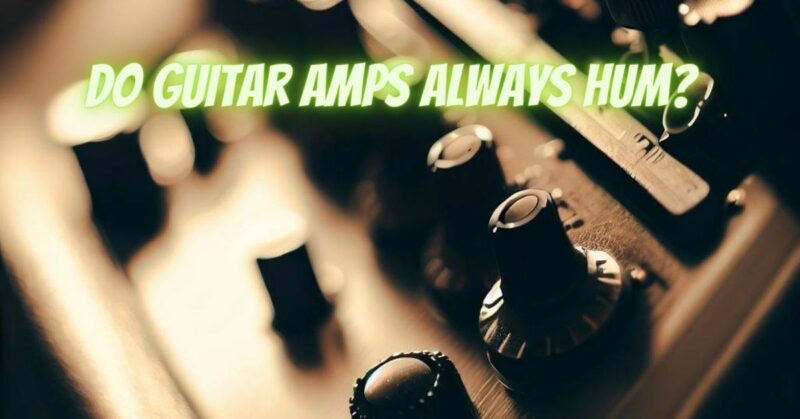Guitar amplifiers are the heart and soul of any electric guitarist’s setup, producing the tones and effects that bring music to life. However, a common occurrence that can sometimes raise concern is the presence of a humming or buzzing sound. The question often arises: Do guitar amps always hum? In this article, we’ll explore the factors contributing to amplifier hum, whether it’s a normal part of the process, and ways to address it.
Understanding Amplifier Hum:
Amplifier hum is characterized by a low-frequency buzzing or humming sound that can be heard when the amplifier is powered on but not actively playing any music. This hum can vary in intensity and can stem from multiple sources within the amplifier circuitry.
Sources of Amplifier Hum:
- Electromagnetic Interference (EMI): External electromagnetic fields from nearby electronic devices, power lines, or lighting systems can interfere with the amplifier’s circuits and cause hum.
- Ground Loops: Ground loops occur when different components in the setup are grounded at slightly different potentials. This can result in a hum caused by the flow of electrical current along these different ground paths.
- Tube Amplifiers: Tube amplifiers, while revered for their warm tones, can introduce some inherent hum due to the nature of their vacuum tubes. These tubes can generate some electrical noise, which contributes to the hum.
- Power Supply Noise: Inadequate power supply filtering can lead to power line noise being introduced into the amplifier’s signal path, resulting in hum.
Is Hum Normal?
While some level of hum can be normal in certain situations, excessive and persistent hum should be addressed. Mild hum might be barely noticeable, especially when playing at higher volumes where the sound of the guitar and effects dominate.
However, modern amplifiers are designed to minimize hum as much as possible. Manufacturers implement techniques like improved grounding, shielding, and power supply filtering to reduce the impact of hum on the amplifier’s performance.
Reducing and Eliminating Hum:
- Isolate External Sources: Move the amplifier away from potential sources of electromagnetic interference, such as fluorescent lights, computer monitors, and other electronic devices.
- Check Grounding: Ensure that all components in your setup are properly grounded. This can help eliminate ground loop issues that lead to hum.
- Quality Cables: Using high-quality shielded cables for connecting your guitar, effects pedals, and amplifier can reduce the chances of picking up unwanted noise.
- Power Conditioners: Consider using a power conditioner to regulate the electrical supply to your amplifier and other gear, reducing the impact of power line noise.
- Tube Maintenance: If you’re using a tube amplifier, regular maintenance and checking the condition of the tubes can help minimize inherent hum.
While some level of hum can be present in guitar amplifiers due to various factors, it should not dominate the listening experience or interfere with the enjoyment of playing. Modern amplifiers are designed to minimize hum, and there are steps you can take to further reduce or eliminate it. By understanding the sources of hum and addressing them systematically, you can ensure that your guitar amplifier delivers the best possible sound quality and performance.


